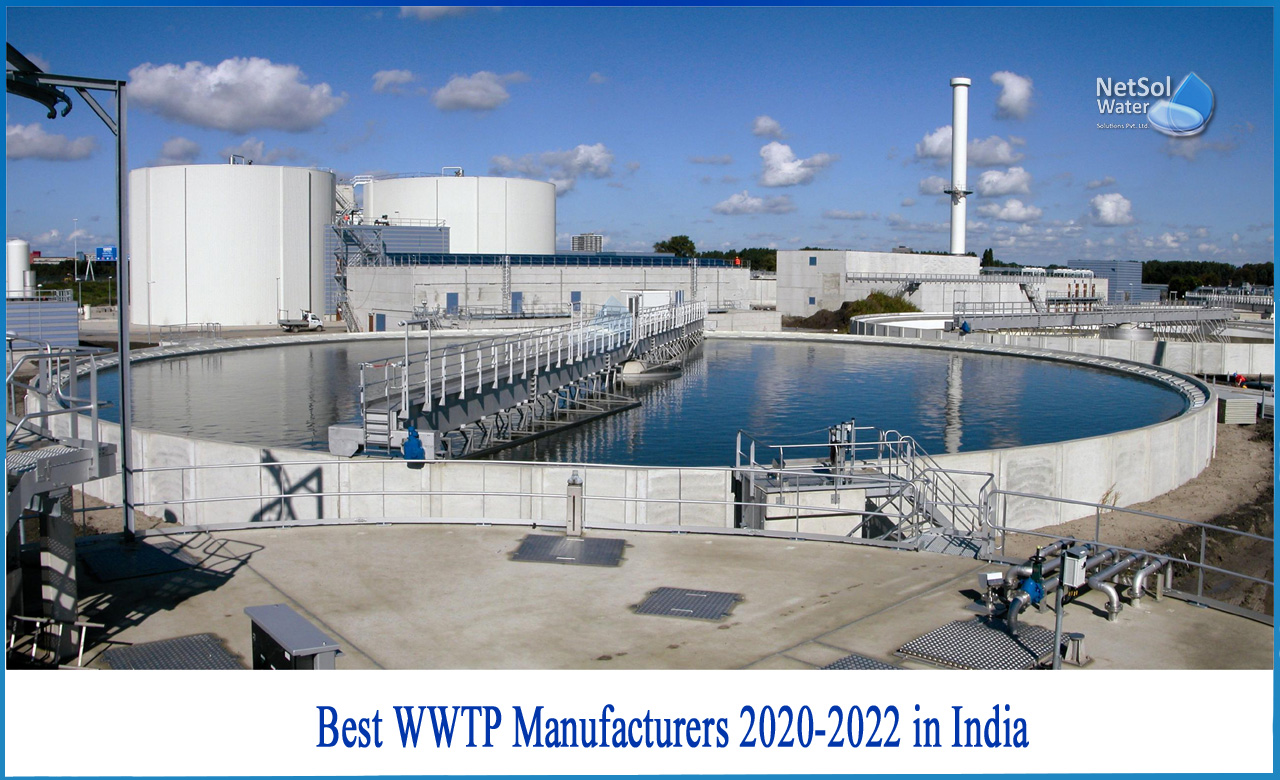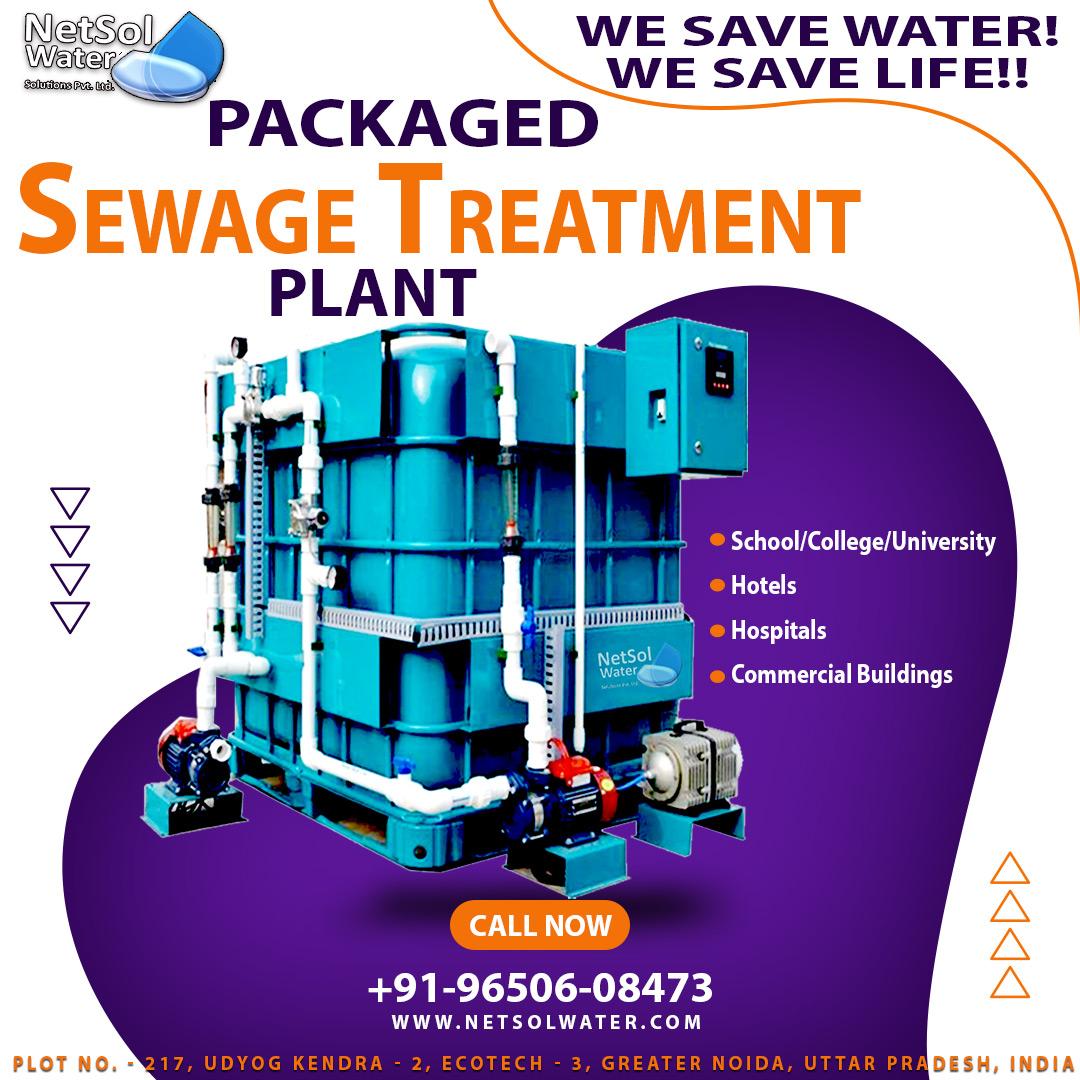Who are the Best WWTP Manufacturers?
Netsol Water, a leading Wastewater Treatment Company in Delhi-NCR, manufactures top-of-the-line machines such as Compact Sewage Treatment Plants and Compact Effluent Treatment Plants that treat wastewater for further beneficial uses throughout the industry and return it to nature while conserving natural resources.
We are India's top manufacturer of water and waste water treatment plants as well as sewage treatment plants and effluent treatment plants.
Contaminants, human waste, and microorganisms are removed from wastewater produced by manufacturing businesses and residential societies at Wastewater Treatment Plants. When wastewater containing human waste, kitchen garbage, and industrial waste is poured down the drain, it pollutes water bodies and has a negative influence on Mother Earth. Wastewater treatment is always useful when it comes to reducing groundwater pollution.
Sewage Treatment Plants, Effluent Treatment Plants, and Zero Liquid Discharge Plants are examples of machines that fall within the Wastewater Treatment Plant category and are available in a variety of capacities to meet the needs of customers. The wastewater treatment plant's capacity ranges from 3 KLD (customer demands) to 100 MLD and can be customized as per customer’s requirements.
The Wastewater Treatment Plant uses cutting-edge technology to treat wastewater, including:
· Aeration (Extended)
· Membrane Bio-Reactor
· Bioreactor with Moving Beds
· Batch Reactor in Sequence
· Fixed Submerged Aerated Film
Netsol Water consistently uses cutting-edge technology in India and keeps up with the latest developments in the field of water treatment and waste management. Our team consists of engineers, and managers who work tirelessly 24 hours a day, 7 days a week, 365 days a year to develop the highest quality products using the most cutting-edge technologies.
Advantages of Waste Water Treatment Plants
1. Eliminates the Risk of Disease
Hazardous organisms and disease-causing bacteria are removed by wastewater treatment systems. To remove such pollutants, wastewater is filtered before leaving the tank and entering the ground. Pathogens are kept out of water sources and away from plants and farm animals using this filtration method.
2. Low Cost
Low-cost wastewater systems can last up to 15 years if properly maintained. They are a low-cost method of cleaning water and reducing the spread of hazardous microbes. Many grants and other forms of financial aid are now available to help you pay for a wastewater system.
3. Emissions of odors are kept to a minimum
Modern waste water systems emit little odors when compared to older systems. Because of the odors that a septic tank or similar system might emit, many people are hesitant to invest in one. If present systems are properly maintained, odors are not a concern.
4. Maintenance is minimal
Modern wastewater treatment systems are far easier to maintain and last significantly longer than older models. Depending on usage, a septic tank may require de-sludging every 2 to 3 years, with maintenance checks every 2-3 years. You can conduct your own checks in the meanwhile by checking for telltale signs of problems.
5. Less wastage
Septic tanks today do not waste as much water as main lines do. For only one use of the toilet or one load of washing, there is no surplus waste water that needs to be handled. The water utilized is returned to the earth and naturally purified.
Wastewater Treatment Plant Applications
1. Wastewater Treatment Plants are utilized in industries such as oil and mining, manufacturing, and others.
2. School Wastewater Treatment Plant
3. In the hotel industry, a wastewater treatment plant is used.
4. Wastewater Treatment Plants in Housing Complexes, etc.
Conclusion
Purchasing a wastewater system has grown more affordable in recent years, and technological advancements have made modern systems more environmentally friendly, cost-effective, and easier to operate than prior versions.
Our engineering and design team has continued to provide satisfactory performances in a variety of areas. We've done a lot of industry-specific testing to figure out what the best conditions are for different sorts of wastewater in various climates. As a result, we've been able to come up with new approaches to handle real-world challenges including mixing, lowering energy expenses, and scouring. We offer cost-effective and innovative water management solutions that ensure a more efficient system with less water, fewer chemicals, and, ultimately, reduced energy use.




